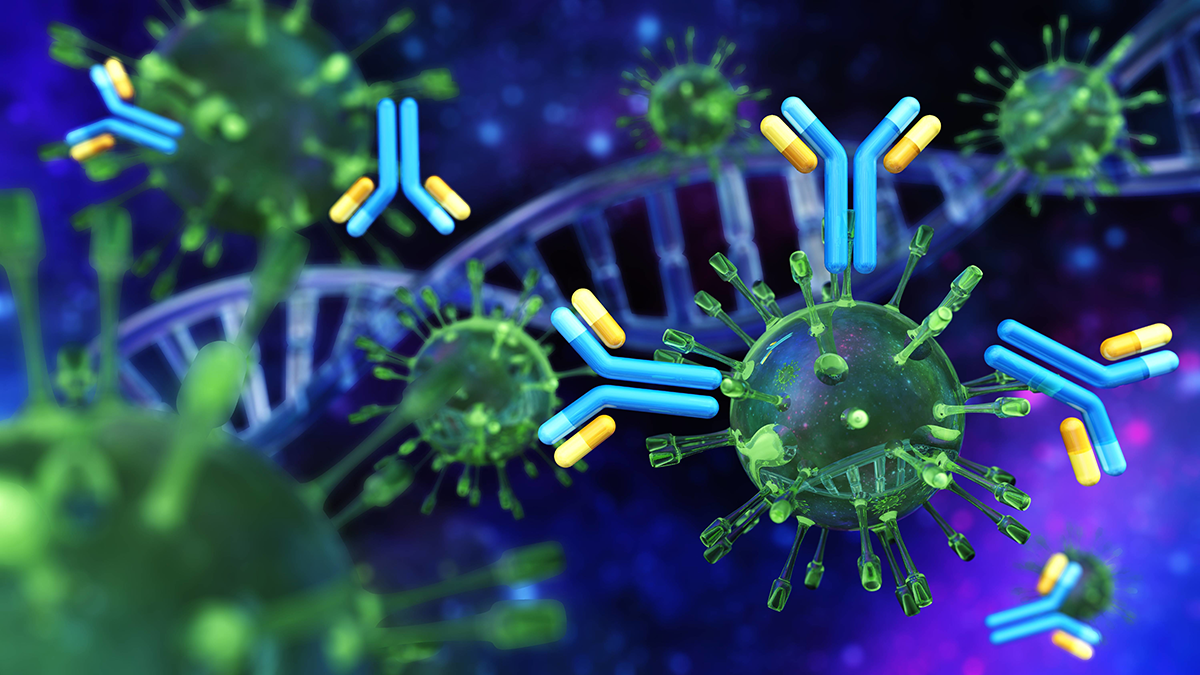Georgetown University Medical Center and MedStar Georgetown University Hospital Collaborate on COVID-19 Antibody Study

Posted in News Release | Tagged 2019 Novel Coronavirus, biomedical research, cancer, COVID-19, immune response, infectious disease, SARS-CoV-2
Media Contact
Karen Teber
km463@georgetown.edu
WASHINGTON (May 7, 2020) — Georgetown University Medical Center, in collaboration with MedStar Georgetown University Hospital, is conducting a study to test for antibodies in two groups of people with increased vulnerability to COVID-19: hospital workers and those with cancer.
The FDA has approved (under an emergency use authorization) only a few tests produced commercially to detect antibodies against SARS-CoV-2, the virus that causes COVID-19. Little is known about the true frequency of infections, the severity of infections in specific populations, and the extent of immunity that develops if infected.
For the study, blood samples will be collected in April and May, and will be collected again from the same study participants after the “first-wave” of the COVID-19 pandemic. The study will help researchers better understand the true biology of the disease, the risk to cancer patients and hospital staff, and enable the clinical community to better prepare for future waves of COVID-19. Only those without current symptoms of COVID-19 who a) are being treated for cancer at Georgetown Lombardi Comprehensive Cancer Center/MedStar Georgetown University Hospital or b) employees of MedStar Georgetown or Georgetown University Medical Center working in a hospital setting qualify to participate.
“Many individuals infected with the novel coronavirus have no symptoms or few and minor symptoms, so they may not know they’ve been infected,” explains Michael B. Atkins, MD, a medical oncologist and lead investigator of the study. “Because of that, we don’t really know how widespread the infection truly is in different populations.”
Lisa Boyle, MD, co-investigator of the study and vice president of medical affairs at MedStar Georgetown University Hospital, says understanding the potential immunity of health care workers is critical.
“Understanding the immunologic response to this disease will be critical as we emerge from the current pandemic,” says Boyle. “Our current knowledge about antibody production to this virus is limited, therefore we anticipate that the information obtained from this study will be beneficial as we move forward.”
Atkins adds, “For oncology patients, who often have a compromised immune system, understanding the true risk of SARS-CoV-2 infection will help minimize and protect patients from the next wave of COVID-19.”
All study participants complete a survey and give a blood sample at enrollment and again after about three months.
While there may be no benefit to the health of participants, the data from the tests will provide potentially valuable information about their prior exposure to the virus.
“At this time, we don’t know if testing positive for the presence of the antibody in the blood means the person is fully protected from future SARS-CoV-2 infection,” Atkins explains. “However, individuals identified to have high levels of immunity could be less susceptible to symptomatic reinfection and also could serve as donors of convalescent plasma to treat patients with severe COVID-19 symptoms.”
Note: This study is no longer enrolling hospital workers. Georgetown Lombardi patients interested in enrolling in the study should contact their oncologist.
In addition to Atkins and Boyle, study investigators include Catherine Lai, MD, MPH, and Arnold Potosky, PhD.
The authors report having no personal financial interests related to the study.
